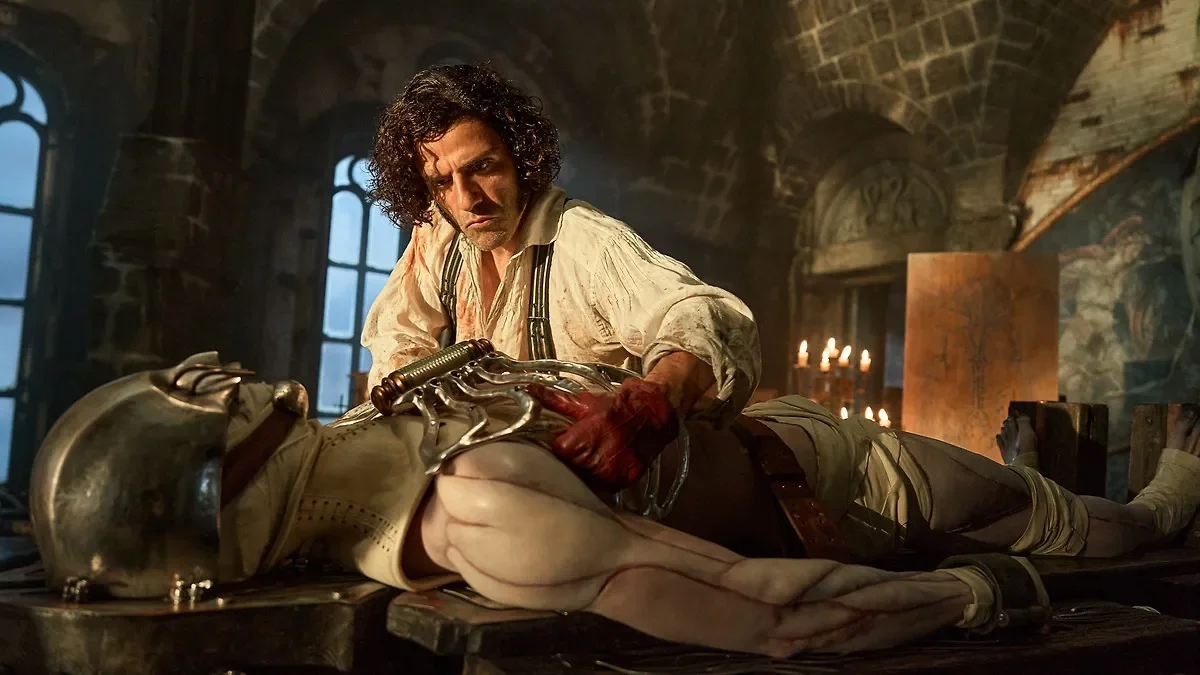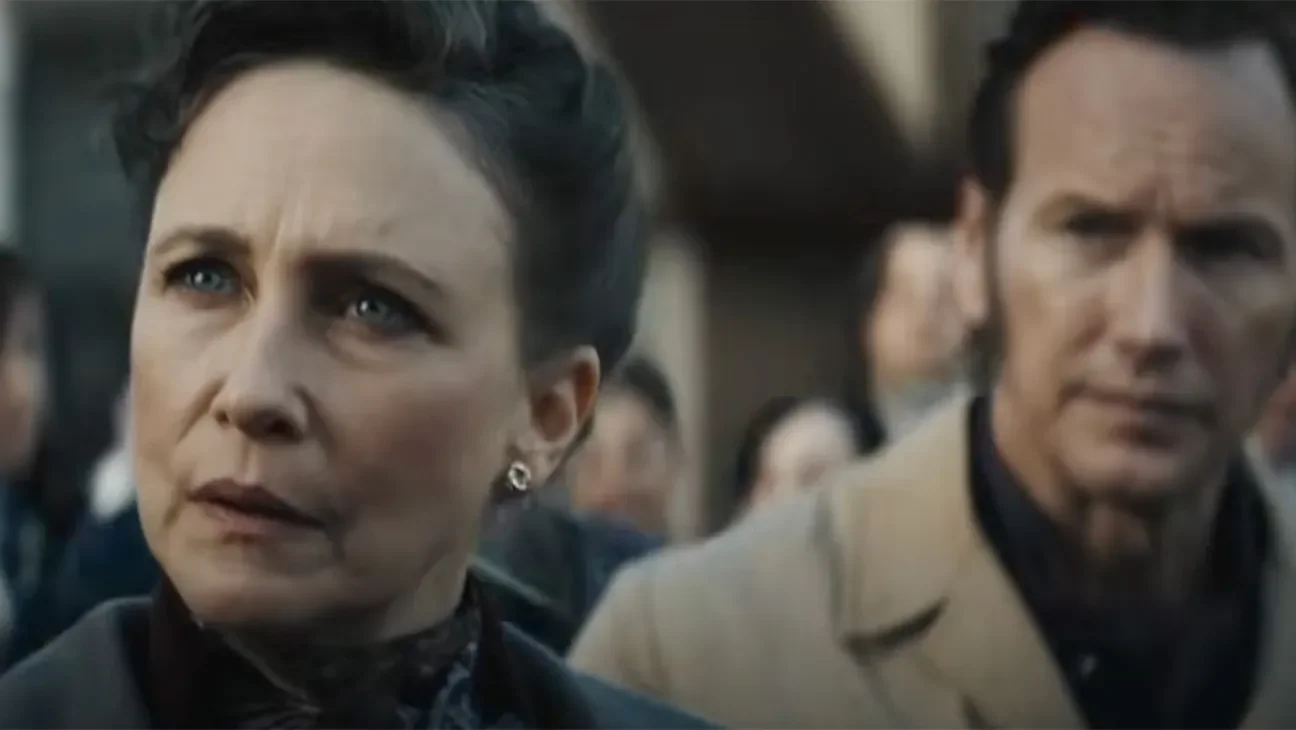Long Legs (2024): Exploring The Bridge Between Thriller and Horror
Like many of you, I was lured to the film by the marketing of Long Legs (2024) which emphasized the comparison of the film to classics like Silence of the Lambs (1991) and its refusal to show Nic Cage’s (playing title character, Long Legs) face.
Even if I wanted to skip this one, my fiancé would never let me because she, as both a fan of Nic Cage and horror, just had to see this one in the theater. My feelings about the film, like those of many others who have watched it, are complicated at best. Under the guise of a serial killer procedural at first, Oz Perkins' film explores the dark and frequently unnerving dynamics of what parents hide from their children and I think it is in that thematic underpinning the film works well, as well as its examination of the dark side of the occult.
The Plot and Performance of Long Legs
The film starts as a standard thriller, and the comparisons between Silence of the Lamb and even something like Seven (1995) are spot on. Tonally, the film hits a blend of copy drama and slasher film, but very quickly, it goes into more of an existential horror realm. For example, when we are introduced to Long Leg’s face (or rather what Nic Cage looks like with too much plastic surgery), it is the one big jump scare payoff.
Had the film kept this tone, striking the balance between the expected and the completely off-the-wall unexpected, I think that payoff would have been kept throughout. For example, for the Long Legs characters, I felt like he was underutilized throughout the film, and director and writer Oz Perkins did the character a disservice by forcing the rockstar persona reminiscent of Buffalo Bill. They purposely wanted to use the plastic surgery facial makeup so I feel like that was a direction they could have moved towards.
Further, Lee Harker, the narrative FBI agent whose story we are following, also had an underwhelming portrayal through Maika Monroe. I will go deeper into this character later in this film analysis, but although the acting had a purpose for coming off stilted and wooden, this didn’t feel deserved even when this reveal occurred much later in the film.
One stand-out character in the film is Ruth Harker character played by Alicia Witt, and is through this character that we explain the inner narrative layers of the movie, showing that although the outside may imply a straightforward horror movie, the underlying plot is far more complex.
This deeper level of the film underlines Perkin’s inspiration from films like Eraserhead (1977) in which the mundanity of life, such as the responsibilities of parenthood, can be viewed under the sinister lens of horror.
The Varied Themes of Long Legs
Long Legs has many different and intricate themes. Under the surface of a drama about a serial killer, there is a poignant examination of the occult and the loss of innocence. If you have seen the film, then the doll motif comes up to underpin the idea of how malleable children are, which is shown in the fact that they are molded and crafted by Long Legs himself. Further, are the dolls themselves a symbol of the abuse and trauma or are they a visual example of a parent’s desire to keep their child frozen in time, so that growing up is not an option?
In discussing this with my partner, she believed that the former is true, and the sphere is the representation of the implanted memories that we harbor as we grow up. It makes the trauma more digestible, the brain's way of coping, but should this ever be released the shadowed horror of our youth come back to haunt us.
Using the uncanny valley effect, which reminded me greatly of dark internet culture, such as the creepy YouTube video "I Feel Fantastic," the movie creates a profound feeling of unease and unfamiliarity. Long Legs hits the same feeling that the frequently disregarded tragedies ingrained in contemporary myth and online culture hit – something darker that lies underneath the surface of every cat video and funny meme.
Perkins also discusses missed opportunities in his past works and how they shaped the thematic goals of Long Legs through recent interviews. His reflections on personal experiences, such as growing up with a closeted gay father, inform the film’s narrative about the secrets parents keep protecting their children—or perhaps to shield themselves. This personal history enriches the film’s exploration of deception and protection within familial bonds. To end, Perkins says “My father was an actor who had sort of a private life that was not acceptable in the mainstream, whether you want to call him a gay man or a bisexual man, whatever moniker we want to put on that,” says Osgood. “You couldn't do that; you couldn't be both. You still can't!”
Of course, all these themes get wrapped up in the occult bow and become shielded by the devil=scary trope. While the occult theme is certainly compelling and serves up fears, I do think this makes the film lose sight of its overall goal, the things that are far more horrifying like loss of innocence or loss of bodily autonomy.
Critical Reception and Audience Expectations
As I mentioned earlier, the marketing department behind the film did a phenomenal job drumming up anticipation and setting up audiences for a terrifying experience. I, as a certified chicken, went in expecting to be horrified to the point where I was watching the movie through my fingers, but I didn’t get scared at all.
The interesting blending of occult ideas with existential dread, coupled with the deeper more sinister meaning was so interesting, that I felt personally let down by the lack of suspense and terror. I have read other reviews that spoke of a jumped tone that was too disjointed to be impactful and for that, I agree. Although the film's creative ambitions were lofty, critics pointed out that its execution of fusing horror aspects with more profound philosophical issues was uneven and thus, the film was flawed from the jump.
Although memorable, in addition to the above Nic Cage's villainous and literal evil character occasionally veered into the ridiculous, which took away from the overall spooky vibe of the movie. When my partner and I exited the movie, we weren’t talking about the occult themes or the jump scares, no we were scream-singing to each other “Let me in noooow” and if that’s the takeaway from a horror movie, well, that’s not good.
The Essence of Long Legs
Okay, this is the part where I give you a spoiler warning – so spoiler warning! The main actress's character is revealed to have been in a liminal condition, her essence imprisoned in a state of limbo, through one of Long Leg’s dolls, in a crucial twist. This has all been aided by her mother, Ruth Harker, who had to choose between becoming a servant of Satan and allowing her daughter to have the same fate bestowed upon the others.
This revelation aims to heighten the film's commentary on the spectral presence of the past and its lingering effects on the present. It is a theme I desperately wanted there to be a further exploration of, because I felt like this could have taken Long Legs to much darker territory, however, in the end, this twist only added to the strange struggle to balance between the genre expectations of horror and the deeper meaning and symbolism of the film.
Bridging the Gap Between Psychological Thriller and Occult Horror
Long Legs is a film that tries to bridge the gap between a psychological thriller and your standard occult film. While the film does have psychological horror tones throughout, it never quite closes that gap completely. While the complexity of familial relationships, and the darker themes and tone throughout the film are worth further dissecting, quite simply, the film was not scary, and at times, it even came off as silly and campy.
Despite this, Oz Perkins's ambition and the film's depth of theme elevate it above other entries in the genre, enticing audiences to explore the psychological horrors that mold our lives and perceptions in addition to the obvious scares. It is certainly a film that is memorable and is uniquely its own.

















A personal ranking of the best horror movies of 2025, from experimental slow burns to grief-soaked nightmares that linger long after the credits.